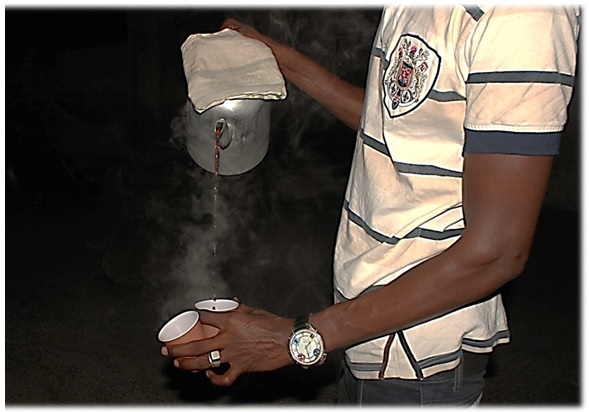Facts About Café Touba
Café Touba is a cherished traditional coffee beverage from Senegal and Guinea-Bissau, named after the Senegalese city of Touba. What distinguishes this coffee is its distinctive flavor, derived from the inclusion of Selim grains (commonly known as Guinea pepper) and occasionally cloves. The true essence, however, comes from "djar" a special spice sourced from Côte d'Ivoire or Gabon. These spices are roasted with the coffee beans, ground into a fine powder, and then brewed in a manner similar to drip coffee.
The origins of Café Touba date back to the early 1900s, specifically within the Islamic Mouride brotherhood in Senegal. It was introduced by the brotherhood's founder, Sheikh Amadou Bamba Mbacké, after his return from exile in Gabon in 1902. Traditionally, the drink is enjoyed during ceremonies and special occasions within the brotherhood.
The typical recipe for Café Touba consists of approximately 80% coffee and 20% "djar." Recently, this aromatic coffee has been gaining popularity beyond the Mouride brotherhood, emerging as a favorite in cosmopolitan cities. Its surge in popularity has even led to a decline in the consumption of imported coffee in Senegal, particularly evident during the global recession of 2009. In Guinea-Bissau, Café Touba has become the drink of choice, significantly impacting the sales of instant coffee brands like Nescafé across West Africa.

 Guinea Bissau
Guinea Bissau